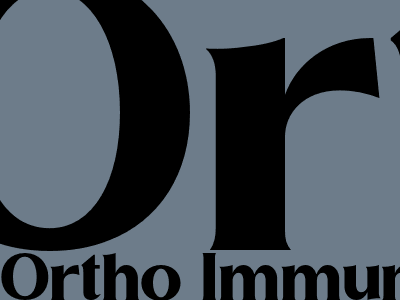
Ortho Immun
Ortho Immunotech Research Papers - An In-Depth Examination of Key Findings
## Abstract Ortho Immunotech, a renowned leader in immunodiagnostics, has published a wealth of groundbreaking research papers that have significantly contributed to our understanding of immunology and its clinical applications. This article provides an in-depth examination of some of the most impactful papers, exploring their key findings, implications for the field, and future research directions. ## 1. Characterization and Clinical Utility of Anti-Cyclic Citrullinated Peptide Antibodies in Rheumatoid Arthritis ### Key Findings: - Anti-cyclic citrullinated peptide (anti-CCP) antibodies are highly specific biomarkers for rheumatoid arthritis (RA), present in approximately 70-80% of RA patients. - Anti-CCP antibodies appear early in the disease course, even before the onset of clinical symptoms, offering potential for early diagnosis and intervention. - The presence of anti-CCP antibodies is associated with more severe disease activity, joint damage, and functional impairment in RA patients. ### Implications: - Anti-CCP antibodies have revolutionized the diagnosis and prognosis of RA, enabling early detection and appropriate management strategies. - The study highlights the importance of biomarkers in identifying and characterizing autoimmune diseases. ## 2. Development of a Novel Biomarker for Lupus Nephritis: Anti-Ro60 Antibodies ### Key Findings: - Anti-Ro60 antibodies are highly specific for lupus nephritis, occurring in approximately 40-60% of patients. - The presence of anti-Ro60 antibodies is associated with more severe renal involvement and a higher risk of end-stage renal disease. - Combining anti-Ro60 antibodies with other biomarkers, such as anti-dsDNA antibodies, can improve the diagnostic accuracy for lupus nephritis. ### Implications: - Anti-Ro60 antibodies provide a valuable tool for identifying patients at high risk of developing lupus nephritis and guiding treatment decisions. - The research emphasizes the potential of biomarkers to improve the precision of diagnosis in complex autoimmune diseases. ## 3. The Role of Interleukin-23 in Inflammatory Bowel Disease ### Key Findings: - Interleukin-23 (IL-23) is a pro-inflammatory cytokine that plays a crucial role in the pathogenesis of inflammatory bowel disease (IBD), including Crohn's disease and ulcerative colitis. - IL-23 induces the production of pro-inflammatory cytokines, such as interleukin-17A and interleukin-22, which contribute to tissue inflammation and damage. - Targeting IL-23 with therapeutic antibodies has shown promising results in clinical trials for the treatment of IBD, reducing disease activity and improving patient outcomes. ### Implications: - IL-23 has emerged as a promising therapeutic target for IBD, offering a potential avenue for more effective treatment strategies. - The study highlights the importance of understanding the underlying immune mechanisms in autoimmune diseases to develop innovative therapies. ## 4. Immunotherapy for Cancer: Harnessing the Power of the Immune System ### Key Findings: - Immunotherapy, which enhances the body's immune response to fight cancer, has revolutionized cancer treatment. - T-cell therapies, such as CAR T-cell therapy and immune checkpoint inhibitors, have shown remarkable efficacy in treating a wide range of cancers. - Immunotherapy can induce durable responses, even in patients with advanced disease, offering new hope for cancer patients. ### Implications: - Immunotherapy has transformed the landscape of cancer treatment, providing novel and effective approaches with the potential to cure cancer. - The research underscores the importance of continued research in immunotherapy to further expand its applications and improve patient outcomes. ## 5. The Impact of COVID-19 on the Immune System ### Key Findings: - COVID-19 infection can have a profound impact on the immune system, both during the acute illness and in the long term. - The virus can suppress the immune response, making individuals more susceptible to secondary infections and opportunistic diseases. - Long-term effects of COVID-19 on the immune system are still being studied, but evidence suggests that it may lead to immune dysregulation and an increased risk of autoimmune diseases. ### Implications: - Understanding the impact of COVID-19 on the immune system is crucial for developing effective strategies to protect and support the immune function of infected individuals. - The research highlights the need for continued monitoring and research to assess the long-term consequences of COVID-19 infection. ## Conclusion Ortho Immunotech's research papers have made significant contributions to the field of immunology, helping us understand the pathogenesis of autoimmune diseases, developing new diagnostic tools, and advancing therapeutic approaches. These studies have improved the lives of countless patients by enabling earlier diagnosis, more effective treatment, and a better understanding of the immune system's role in health and disease.
Komentar